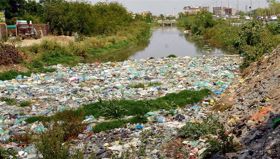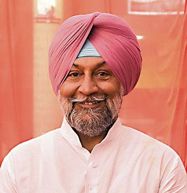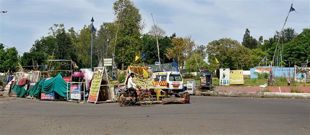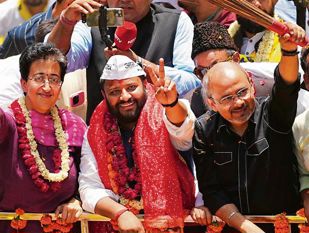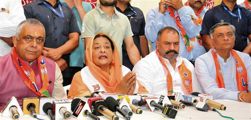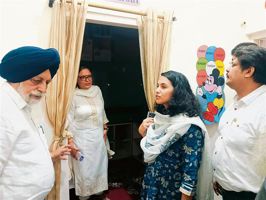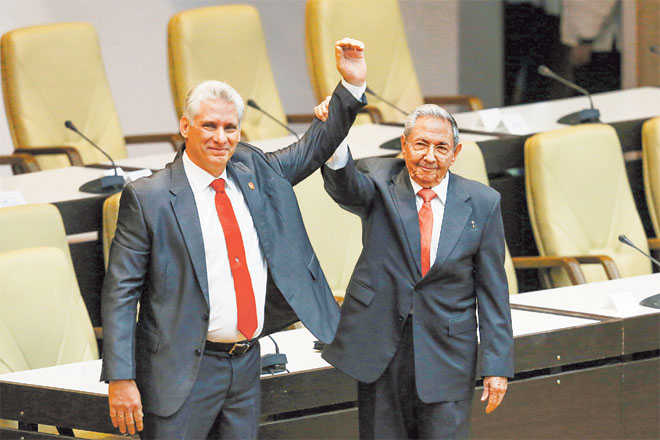
Miguel Diaz-Canel (L) and Raul Castro. Reuters
Floriano Filho
Brazilian journalist
Except for nostalgic socialists or foreign relations pundits, one could hardly argue the replacement of Raul Castro by engineer Miguel Diaz-Canel, as the new president in Cuba, ranked among the top concerns within Latin America. As the pink tide has been fading away and turning to the centre or even to the right of the political spectrum, Cuban ideological influence over the region has lost ground, aside from places like Bolivia or crisis-ridden Venezuela.
Cuba’s economy
Like other closed or over-regulated economies such as China before several liberalising reforms or old day's Soviet republics and their Eastern European satellite countries, Cuba has a dual monetary and exchange rate system.
The international sector exchange has a “hard currency” equaling 24 times the money paid to local workers. That generates several economic distortions in the words of Raul Castro himself, who will continue in power by leading the Cuban Communist Party until 2021.
It is still hard for a Cuban family to have great aspirations, considering the official average salary which was raised to about $25 (or 687 pesos) per month in 2015. The amount is not much better today.
Not being enough to subsist, about half a million Cubans have joined the ranks of self-employment despite government restrictions. Joint ventures with foreign companies and tourism, with the opening of several bed and breakfast places for example, have offered some potential earnings. Some self-employed workers have kept their government jobs. Others have dropped out of the formal labour market.
Urban jobs tend to offer higher salaries and wider opportunities, including in the gray market. In the agricultural sector, there are some 200,000 land-lease farmers and 50,000 private landowners. Rural cooperatives, including for credit and services, add to the numbers, putting about 40 per cent of the labour force in private economy.
The marketplace gradual transformation was also a consequence of fears that social unrest could grow out of rising inflation following an economic downturn. Especially after the ideologically-allied Venezuelan economy collapsed and stopped sending much-needed financial and material resources. Cuban officials have recognised the GDP would have to grow at least 5 per cent annually in order to achieve a sustainable growth path. Instead, Raul Castro's decade in power saw a tendency of stagnating at 2 per cent a year. In 2016, according to the Cuban Statistical Yearbook, GDP growth was a meagre 0.5 per cent.
Hence, the very slow economic opening carried out during Raul Castro's years seemed to have fallen short of necessary. It included granting a million hectares of land to private farmers, loosening government rules over small private businesses, allowing Cubans to buy and sell their homes, making the internet more accessible, and restoring diplomatic relations with the US. That last reform, however, has been pushed back by the Trump government.
Examples of major reforms that did not take place include the incredible 95 per cent tax on wage payments by joint ventures. That kind of abuse by the state is far from an encouragement to foreign investors.
Incentives for international participation and financing of infrastructure through transparent and lighter regulations are needed to promote export competitiveness. It is hard to think that would happen without proper energy supply and pricing, IT access, and transportation grids.
Brazilian concerns
As the new President takes over, Cuba is a top concern in Brazil, mainly due two events stand out for Brazilians:
1 One is the millions of dollars of Brazilian taxpayer money lent to refurbish and expand a port in Mariel, remembered particularly in Florida as the departure point for 125,000 Cubans who fled to the US during the 1980 boatlift.
Raul Castro, whose 10 years in government frequently experienced staples shortages, energy rationing, and price inflation, once stated the port was the most complex project ever initiated in Cuba. Brazilian construction giant Oderbrecht, accused of creating a bribery ring in 12 countries, undertook the project, which is part of a special development zone.
2 The second event would probably be the unusual cooperation announced in 2013 which brought more than 11,000 medical doctors to work in Brazil. It is not a diminutive figure for a country with a population of less than 12 million people, and despite the education and health advances that Cuba might have achieved since Fidel Castro took power in 1959. The programme intermediated by the Pan American Health Organization did not work exactly as initially planned, as almost 200 of those doctors requested asylum in Brazil for political or economic reasons. Other countries that received medical personnel from Cuba faced similar situations.
If for Cuban doctors life is not easy, citizens in other jobs face worse hardships.
Díaz-Canel has promised to “ensure the continuity of the Cuban revolution.” He also said the country’s foreign policy would remain “unaltered.”
Barack Obama, who re-established US-Cuba relations, would probably be disappointed with those lines, having said before being elected that “change will not come if we wait for some other person or some other time. We are the ones we've been waiting for. We are the change that we seek.” Many Cubans might be also wondering how far their aspirations can go and how much their lives can be improved if more changes come.





















